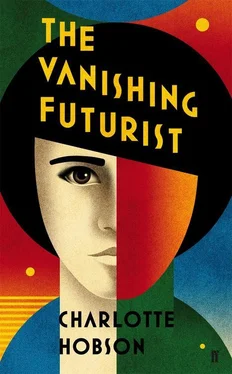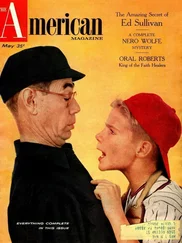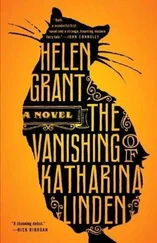I have rarely discussed this aspect of our Revolution even after leaving Russia, throughout my life in London. During my years of political activism, at my Socialist reading groups and women’s groups and marches and demos, I’ve been asked endlessly about my experiences in Russia. I mentioned already that even my memories of the October Revolution used to upset people – they weren’t the correct memories. The same went for other details of life in the Soviet Union, some of which I have never told until now. Socialists couldn’t afford to listen, they couldn’t afford to doubt. They had devoted too much already to the cause. Slavkin’s remark came to mind: ‘Revolution will redeem all these sacrifices.’ If, however, one doubted the Revolution, none of our sacrifices made any sense at all.
Now I am finally laying down the burden of silence, I am confessing, and I find myself awake in the middle of the night, feeling like a traitor to the cause. Oh, I can see already that my husband was right – the truth will carry out its surgery on my ragged old heart. I can feel already the almost sensual relief of blurting everything out, even the most shameful parts that I’ve been terrified of revealing, all my weaknesses and petty inhumanities. But what about the people who are being told, the dedicated Socialists – what effect will it have on them? And what about Sophy? I am almost eighty now, alone, and my only daughter is my greatest comfort in the world. I am afraid that this story can only cause her pain and confusion. I dread the thought that it will take her from me.
* * *
We slept little enough that night and by six o’clock Sonya, Slavkin and I were already in the hall of Narkompros, where Pasha worked. Slavkin thought it might be useful to have me with them as a foreigner – perhaps thinking of the magical effect my British passport had had on the militia when, long before, they had come to search the house. I thought he also knew I was good in a crisis, whereas Sonya was shaky and close to tears.
At the Narkompros we waited in a crowd of petitioners hoping for a hearing. Lunacharsky had only just moved from Petrograd to Moscow and he was impossible to see. At any rate, I knew Slavkin would insist we wait our turn. He always used to say in these situations, ‘How do we know what urgent business occupies these fellows?’
‘Oh, Gerty,’ Sonya kept whispering, ‘please, convince him that we must hurry!’
I did no such thing. However, after a few minutes Sonya spotted a colleague of Pasha’s called Bokin and flung herself on him.
‘I’m just the person you need. I’ll talk to the Commissar immediately,’ he announced, leading us into his office. Slavkin to my surprise made no objection, and we followed in the wake of Sonya’s grateful babble.
As always there was tremendous bustle and excitement at the Narkompros, people rushing in and out, banging of doors, posters laid out all over the floor, and so on. After an hour and a half of fidgeting about, I couldn’t help wondering out loud whether we had been right to believe Bokin. ‘After all, we might have been better off without pulling strings, just waiting in the queue like the other petitioners.’
Sonya jumped up, her face set. ‘I’m not sitting here any longer.’
Bokin, we discovered, was standing in the corridor in the midst of a heated discussion about poster distribution.
‘Comrade Bokin, forgive me for interrupting,’ burst in Sonya, thrusting herself between him and his colleagues, ‘but you said you could speak to the Commissar straight away! Comrade Kobelev has been wrongfully arrested by the Cheka – you know as well as I how hasty they can be in their judgements…’
Shame-faced, Bokin hurried us into another ante-room. ‘Here, here, just a moment, I have mentioned it to him.’
‘No! We won’t wait another “just a moment”!’ Sonya shouted. Tears were pouring down her face, she could barely speak.
‘Shh, Sonya,’ I tried to calm her, glancing at Slavkin for his approval. ‘This behaviour won’t help.’
She pushed my hand away and turned to Slavkin. ‘Nikita, how can you let this happen? They’ll shoot them!’
‘Nonsense, Sonya, don’t exaggerate,’ I told her sharply.
‘No,’ Slavkin spoke up suddenly. ‘Sonya’s right. Bokin, you could have blood on your hands if you don’t take us straight to the Commissar.’
I couldn’t believe my ears. ‘But… the other petitioners?’ I couldn’t help saying.
‘The other petitioners can go to hell,’ spat Sonya. ‘And why don’t you go with them? You seem to care about them more than you do about Pasha…’
‘Come on, Bokin, we’re following you,’ snapped Slavkin, taking Sonya’s hand. ‘Let’s go!’
They hurried off through the warren of offices.
‘Ugh, Bokin,’ said his colleague, watching their backs disappear. ‘Like a piece of puff pastry.’
‘Why’s that?’
‘You know what he promised me last week? He’d have public-health posters up in Vladimir, Kostroma and Yaroslavl by Saturday. Now I’ve just found them still in boxes a week later.’ He sighed gloomily. ‘I don’t know where Bokin is taking your friends. The Comrade Commissar isn’t even here. He’s gone back to Petrograd for a few days.’
I stared at him for a moment. An image sprang into my mind of Pasha, blindfolded, arms tied. Adrenalin gushed through my veins. Sonya was right…
Running through the streets, sweat trickling down my sides, gasping for breath. Where now was my principled belief in equal treatment for all? Involuntarily I let out a groan.
‘All right, comrade?’ said the guard on the door of the Hotel National, alarmed at the sight of me. ‘Oh, it’s you. Go in.’
I staggered past him and stopped to catch my breath in the entrance hall. To my horror I realised I was about to be sick and rushed outside again.
‘Ugh,’ said the guard, making a face like a little boy.
‘I’m sorry,’ I managed to blurt out.
‘You go in and get warm,’ he said nicely. ‘I’ll cover it up, don’t worry.’
I took the stairs slowly, one at a time, and hung onto the banister. There – Pelyagin’s door. His assistant opened it just as I got there.
‘Comrade Freely!’ she gasped. ‘What’s become of you? Here, sit down.’
‘Oh,’ said Pelyagin, fussing, ‘a glass of tea, please, Rosa – warm yourself.’
‘No, comrade, please, we mustn’t waste time. I’ve come to beg for your help. Two of our commune members have been arrested by mistake.’ Breathlessly I told as much as I knew: their names, the date and place of their arrest.
‘Wait here,’ he commanded. ‘I will make enquiries.’
For a moment I was speechless. How strange, how comforting, to feel myself among friends here. In the next room Pelyagin was making telephone calls – I was too exhausted even to listen. He would tell me in a moment, I thought. With a vast sense of relief I relinquished myself to doing nothing – sipping the carrot tea that Rosa brought me and looking around me idly. Goodness, the realisation flashed into my mind, it’s Rosa Gershtein – the daughter of an acquaintance of Mr Kobelev’s. I had a sudden, vivid picture of her dressed as the Universe in Its Entirety for a New Year’s Eve party at Gagarinsky Lane during the war. How had I not recognised her before? She had been a large, stout girl and was now thin, like everyone, but her hooded eyes were the same.
‘Rosa Gershtein?’ I whispered. ‘Do you remember me – the Kobelevs’ governess?’
Her eyes snapped on mine. ‘Shhh. Of course.’
‘Forgive me, I couldn’t place you.’
‘I’m Rosa Andreeva now,’ she murmured, glancing nervously at the door. ‘Best not to mention it…’
Читать дальше





![Майкл Муркок - Спящая волшебница / The Sleeping Sorceress [= Участь Белого Волка, Рыцарь Хаоса, The Vanishing Tower]](/books/327544/majkl-murkok-spyachaya-volshebnica-the-sleeping-sorc-thumb.webp)






